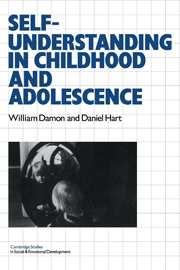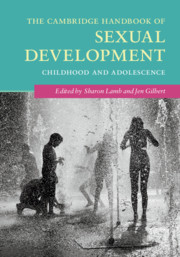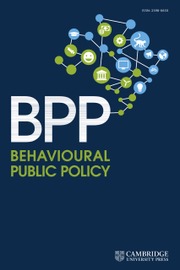Interpersonal Trust during Childhood and Adolescence
Since the beginnings of psychology as a discipline, interpersonal trust has been regarded as a crucial aspect of human functioning. Basic levels of interpersonal trust among people were believed to be necessary for the survival of society and the development of successful psychosocial functioning. Some research has shown that interpersonal trust is linked to physical health, cognitive functioning, and social functioning (including close relationships) across development. This book presents research in the growing field of interpersonal trust during childhood and adolescence (up to the onset of adulthood). It deals with the extent to which children and adolescents demonstrate the multiple facets of trust and trustworthiness, and how these multiple facets affect their social relationships with a wide range of social contacts: parents, peers, and social groups. It will be of interest to developmental, social, educational and clinical psychologists.
- The first academic book to address the topic of interpersonal trust during childhood and adolescence
- Reviews past research to provide a background for the reader, and features the most up-to-date research on the topic
- Includes newly developed scales that permit future research
Reviews & endorsements
"A collection of wide-ranging and impressive scholarship on a subject matter that has been shamefully neglected by most psychologists. In fourteen lucid chapters, readers are challenged to consider what it means for children and adolescents to trust someone and to be trusted in return, and why some individuals are more trusting and trustworthy than others. Even scholars working in areas somewhat removed from the study of children’s developing relationships will find something to contemplate and connections to their own work. Trust me."
--Jeffrey G. Parker, Department of Psychology & Institute for Social Science Research, University of Alabama
"Interpersonal trust is an important topic which has been unjustly neglected. This book plays a significant role in redressing the balance. Taking a developmental perspective through childhood and adolescence, and bringing in disciplines such as behaviour genetics and neurobiology, this excellently organised and comprehensive volume is an invaluable resource."
--Peter K. Smith, Goldsmiths, University of London
"....the only present title that addresses the development of interpersonal trust from infancy through adolescence.... Recommended...."
-- J. Mercer, emerita, Richard Stockton College, CHOICE
Product details
August 2010Hardback
9780521887991
346 pages
229 × 152 × 24 mm
0.68kg
Available
Table of Contents
- Part I. Conceptual Foundations and Issues:
- 1. Introduction Ken J. Rotenberg
- 2. The conceptualization of interpersonal trust: a basis, domain, and target framework Ken J. Rotenberg
- 3. Neurobiology of interpersonal trust Matilda E. Nowakowski, Tracy Vaillancourt and Louis A. Schmidt
- 4. Children's sense of trust in significant others: genetic versus environmental contributions and buffer to life stressors Atsushi Sakai
- Part II. Childhood:
- 5. Young children's trust in what other people say Kathleen Corriveau and Paul L. Harris
- 6. Social relation and mutual influence analyses of children's interpersonal trust Lucy R. Betts, Ken J. Rotenberg and Mark Trueman
- 7. Siblings and trust Shirley McGuire, Nancy L. Segal, Patricia Gill, Bridget Whitlow and June M. Clausen
- 8. The role of promises for children's trustworthiness and honesty Kay Bussey
- 9. Liar liar! Pants on fire: detecting the trustworthiness of children's statements Victoria Talwar and Sarah-Jane Renaud
- Part III. Adolescence and Early Adulthood:
- 10. Trust, but verify: knowledge, disclosure, and mothers' beliefs about adolescents' trustworthiness Nancy Darling and Bonnie Dowdy
- 11. The role of trust in adolescent–parent relationships: to trust you is to tell you Judith G. Smetana
- 12. A new scale for the assessment of adolescents' trust beliefs Brandy A. Randall, Ken J. Rotenberg, Casey J. Totenhagen, Monica Rock and Christina Harmon
- 13. A friend in need is a friend indeed: exploring the relations among trust beliefs, prosocial tendencies, and friendships Gustavo Carlo, Brandy A. Randall, Ken J. Rotenberg and Brian E. Armenta
- 14. Promoting intergroup trust among adolescents and young adults Rhiannon N. Turner, Miles Hewstone, Hermann Swart, Tania Tam, Elissa Myers and Nicole Tausch.










